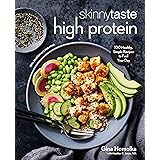The modern consumer faces a significant challenge. Many conventional beverages contain hidden artificial ingredients. They often include synthetic pesticides and growth hormones. These elements raise concerns for health and the environment. Consumers increasingly seek transparent and healthier choices. The solution lies in choosing organic beverages. These products offer purity and peace of mind. They support a healthier lifestyle naturally. They also champion sustainable environmental practices. This article expands on the insights shared in the video. It explores the comprehensive benefits of organic beverages.
Understanding What Defines Organic Beverages
Organic beverages adhere to stringent regulatory standards. These rules ensure product integrity. They prohibit the use of synthetic pesticides. Artificial fertilizers are also strictly avoided. Growth hormones find no place in organic production. Genetically modified organisms (GMOs) are expressly excluded. This meticulous approach guarantees a cleaner product. Consumers can trust its natural origins. These strict regulations safeguard both human health and ecological balance.
The absence of harmful chemicals is paramount. Synthetic pesticides, for instance, are a concern. They link to various health issues. These include neurological disorders and developmental problems. Endocrine disruption is also a noted risk. Choosing organic options helps minimize these exposures. It offers a crucial layer of protection. This commitment spans the entire cultivation and production process.
Growth hormones are often used in conventional animal agriculture. Their presence in dairy products concerns many. Organic standards forbid their use completely. This means cows produce milk naturally. Their well-being remains a top priority. Consumers value this ethical approach. It ensures cleaner, hormone-free dairy options.
Genetic engineering manipulates an organism’s DNA. It introduces new or modified traits. Many consumers prefer natural food processes. They desire ingredients as nature intended. Organic certification strictly prohibits GMOs. This upholds the purity of ingredients. It respects traditional, non-modified farming methods. This choice aligns with a preference for natural biology.
Furthermore, organic beverages contain no artificial flavors. They lack synthetic colors and preservatives. These additives can trigger sensitivities in some people. They offer no nutritional value. Organic drinks rely on natural ingredients for taste and appearance. This results in a cleaner, more authentic flavor profile. It simplifies ingredient lists significantly.
The Growing Appeal of Organic Drinks
Many people perceive organic products as inherently healthier. They often believe them to be more nutritious. This perception is supported by emerging scientific research. Some studies indicate higher antioxidant levels in organic produce. Certain vitamins and minerals may also be more abundant. Consumers actively seek these enhanced nutritional benefits. They contribute significantly to overall well-being. These choices reflect a desire for optimal health.
Parents represent a major driving force. They increasingly gravitate towards natural options. They are actively shunning sugary foods and beverages. Concerns about childhood obesity are at an all-time high. The potential long-term effects of artificial sweeteners also raise alarms. Organic beverages provide a safer, wholesome alternative. They offer natural sweetness from fruits or approved sources. This supports children’s healthy growth and development. Parents prioritize these clean labels for their families.
A profound shift in consumer awareness is evident. There is a heightened focus on personal health. Environmental protection has also become a critical factor. Consumers demand transparency from brands. They want to understand a product’s full lifecycle. Organic farming practices actively promote biodiversity. They meticulously protect natural water supplies. These methods foster healthy, vibrant soils. This holistic approach benefits the entire planet. It represents a more responsible consumption model.
This movement extends beyond individual health. It embraces a broader ethical stance. Consumers consider the carbon footprint of their choices. They look for evidence of sustainable sourcing. Fair trade practices are also highly valued. Organic certifications often overlap with these principles. They signal a commitment to social responsibility. This holistic view drives organic beverage market growth.
Diverse Range of Organic Non-Alcoholic Beverages
The market for organic beverages is incredibly diverse. It offers choices for every taste and occasion. From invigorating morning drinks to soothing evening sips. The selection continues its rapid expansion. Innovation consistently introduces novel offerings. Consumers discover many delicious and wholesome options. Each variety delivers unique health and lifestyle benefits.
Consider the breadth of available options:
-
Organic Tea: These teas offer natural comfort. They provide a rich source of antioxidants. Many are also ethically sourced. They promote calm and focus.
-
Organic Coffee: Pure organic coffee delivers clean energy. It bypasses harmful pesticide residues. Many brands prioritize sustainable cultivation. This ensures a guilt-free daily ritual.
-
Organic Protein Shakes: These shakes support fitness goals. They utilize clean, natural protein sources. Many include plant-based options. They aid muscle recovery effectively.
-
Organic Smoothies: Packed with nutrient-rich organic fruits and vegetables. They offer a convenient, healthy meal replacement. These provide vital vitamins and fiber. They are perfect for on-the-go nutrition.
-
Organic Flavored Drinks: These offer guilt-free enjoyment. They use natural fruit essences for taste. They avoid artificial sweeteners and colors. These provide refreshing hydration options.
-
Organic Water: Sourced from protected, pristine environments. Organic water ensures maximum purity. It is free from urban contaminants. This delivers essential hydration directly.
-
Organic Milk: Provides essential dairy nutrients. It comes from cows raised organically. These animals graze on organic pastures. Their milk is hormone and antibiotic-free.
-
Organic Soda: Offers a healthier, fizzy treat. It uses natural sugars and flavorings. These sodas provide a better alternative. They cater to craving a sparkling drink.
-
Organic Yogurt Drinks: These beverages support robust gut health. They often contain beneficial live probiotics. They aid digestion and immunity. They are a creamy, nutritious choice.
-
Organic Juices: Deliver vibrant, authentic flavors. They are extracted from organic fruits. These juices contain no artificial additives. They provide a pure burst of goodness.
-
Organic Medicinal Juices: These target specific wellness needs. They often feature powerful botanicals. These juices support various bodily functions. They are crafted for holistic well-being.
-
Organic Immunity Boosters: Formulated to fortify natural defenses. They contain immune-supporting ingredients. These often include ginger, turmeric, and citrus. They help the body ward off illness.
-
Organic Keto Drinks: Tailored for low-carbohydrate diets. They contain minimal sugars. These drinks support metabolic health. They cater to specialized dietary preferences.
The Rise of Organic Alcoholic Beverages
The organic movement has significantly permeated the alcoholic beverage industry. Consumers are seeking cleaner, more transparent alcoholic options. This category is experiencing remarkable growth. It features an exciting array of innovative concoctions. Mixes of organic ingredients are increasingly common. Unconventional and exotic flavors frequently delight palates. Even health-promoting additives are sometimes integrated into these drinks.
This expansion includes a variety of options:
-
Organic Rhum: Offers a pure and unadulterated spirit experience. It’s crafted from organically grown sugarcane. This ensures a clean base for cocktails. It delivers exceptional smoothness.
-
Organic Spirits: These spirits guarantee ingredient integrity. They often use organic grains or fruits. This commitment elevates the drinking experience. It ensures a higher quality product.
-
Nutritious Kombucha Beers: These blend fermentation benefits. They offer a unique, healthy twist on beer. They combine probiotics with alcoholic refreshment. This fusion appeals to wellness-minded drinkers.
-
Organic Blended Cocktails: Promise natural, chemical-free mixers. They use organic fruits, herbs, and spirits. These cocktails deliver pure, vibrant flavors. They provide a sophisticated organic choice.
-
Organic Ales: Provide craft quality and natural taste. They are brewed with organic hops and grains. This ensures a pure and distinctive flavor. Many artisanal breweries specialize in them.
Innovation continues to drive new trends. Cider made from 100 percent organic ingredients is gaining immense popularity. These ciders often feature a higher natural juice content. New and exciting flavor combinations are increasingly in demand. This segment also sees the emergence of many light alcoholic beverages. These typically contain around 5% alcohol by volume. They perfectly appeal to consumers’ need for light, fruity refreshments. This offers a guilt-free indulgence.
Key Benefits of Choosing Organic Beverages
Opting for organic drinks delivers a multitude of advantages. This choice directly supports personal health and vitality. It also passionately champions environmental protection. This decision carries broad and impactful positive implications. Every sip contributes to a better outcome. These choices deeply resonate with conscious consumers worldwide.
Specific health benefits are compelling. Consumers effectively **avoid synthetic pesticides**. These harmful chemicals remain absent. They also completely **avoid growth hormones**. Animals involved remain hormone-free. **Genetic engineering** is also bypassed entirely. Food ingredients stay in their original, natural state. This commitment means **fewer artificial flavors**. The taste is pure and authentic. Consequently, **fewer additives** are present. This greatly simplifies ingredient lists, ensuring transparency.
These healthier choices work to **fortify our immune system**. The body processes fewer toxins. This allows it to focus more energy on defense. You not only quench your thirst but **feel truly refreshed**. Increased absorption of vital nutrients by the body is also a key benefit. Organic drinks can also **give your skin antibacterial defenses**. This contributes to a healthier complexion. Overall physical and mental well-being improves significantly.
The environmental impact extends far beyond personal health. Organic farming methods **help to protect natural water supplies**. They prevent harmful chemical runoff. These practices actively **build up healthy soils** organically. This improves soil fertility and structure. It also crucially **preserves biodiversity**. Essential ecosystems and wildlife thrive under these conditions. By-products from organic production are often **biodegradable and easily recyclable**. This significantly reduces environmental waste and promotes a circular economy.
Furthermore, ongoing research explores the protective effects of certain dietary components. A slight reduction in the risk of heart disease is often noted. Cardiac arrhythmias might also lessen with such dietary choices. For instance, consuming generous amounts of citrus fruits, commonly found in organic juices, has been associated with these benefits. Specifically, a reduction in the occurrence of many types of cancers is observed. These include mouth, throat, esophageal, stomach, and liver cancers. This suggests broader protective qualities offered by a diet rich in organic whole foods and **organic beverages**.











